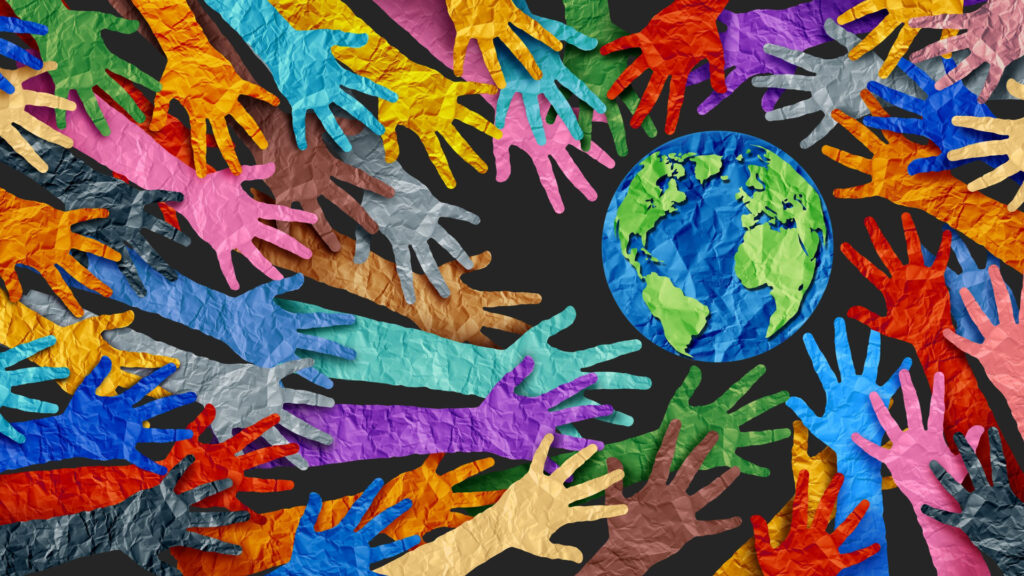Today’s show focuses on the Prosocial movement, a network of people who are studying and testing and putting into action practices guided by principles that put people first. Our guest, Jordan Harmon, a therapist with strong Latter-day Saint roots who practices in Utah, is part of this movement and brings it into focus for those of us who may never have encountered it. In the process, we learn what study has shown to be key factors in the success of groups whose goals are focused on the well-being of people, the biosphere, and this planet with limited resources. He draws us into the work taking place in many fields, including his own, and leads us through the movement’s guiding principles. In the final third of the discussion, he and Latter-day Faith host Dan Wotherspoon turn their attention to religion and how certain ideas, ideals, concepts, and phrases might align with prosocial notions and practices. And, of course, as they discuss religion, Mormonism and some of its notions make their appearance.
Listen in! You will learn a lot and find yourself chewing on many of the conversation’s wonderful morsels.
Links:
Latter-day Faith Retreat, “Creating Intentional Faith Journeys,” November 4th to 6th, Salt Lake City, Utah
Harmon Psychotherapy and Counseling
Lists and Charts discussed in the episode:
Core Design Principles (CDPs): first conceptualized by Lin Ostrom’s research data gathered by observing common elements of groups that are successful in managing common pool resources. then adapted by Ostrom and David Sloan Wilson from descriptive to prescriptive principles of prosocial design.
1. shared identity and purpose
2. equitable distribution of costs and benefits
3. Decision making process is perceived as fair by group members
4. monitory/ transparency
5. Graduated sanctions for unwanted behavior (as well as reinforcement for wanted behavior)
6. Conflict resolution mechanisms
7. Autonomy needed to enact CDPs 1-6
8. Ability to collaborate effectively with other groups using CDPs 1-7
Video of David Sloan Wilson discussing the CDPs. He’s a major scholar in this area and President of the non-profit “Prosocial World”
A functional contextual (Pragmatic) Gospel
| Gospel Term | Jordan’s Functional Contextual Term |
| God | Cosmos, Reality, Truth, Life (the unfolding of), Values, Presence, “Unconditional Love,” a regulative ideal, “God insists more than exists” |
| Law of God | Mechanisms of reality, principles of cause and effect, Love as reinforcing |
| Jesus Christ | Human embodiment of God & healing compassion |
| Spirit of God/ Holy Ghost/ Holy Spirit | State of being; characterized by peace, clarity; balance of apparent opposites |
| Atonement | Alignment with one’s deep sense of self, their “higher power” and others. |
| Zion | Internal and external communities of peace & unity amidst diversity |
| Disciple of Christ | Any being that seeks to embody healing compassion |
| Body of Christ, Church of Christ, “True Church” | A group, org, ecosystem that seeks to embody healing compassion. |
| Faith | Awareness with values based action |
| Love/ Charity/ compassion | being with, suffering with, feeling with and actions that alleviate suffering |
| Gospel/ Religious Terms | Jordan’s Functional Contextual Definition |
| Hell | People stuck in intense suffering |
| Sin | Maladaptive Behavior (individuals, groups, systems) |
| Justification/redemption | Validating the valid, phenomenological empathy |
| Repentance | Change that aligns one with what matters most to them |
| Forgiveness | Acceptance of other and self |
| Natural Man | Tendency toward experiential avoidance |
| Original Sin | Evolutionary mismatch |
| Grace | Accepting we’re already accepted (Peter Rollins) |
| The spirit | Connecting to reality (things as they are)–mindfulness & contemplative practices |

